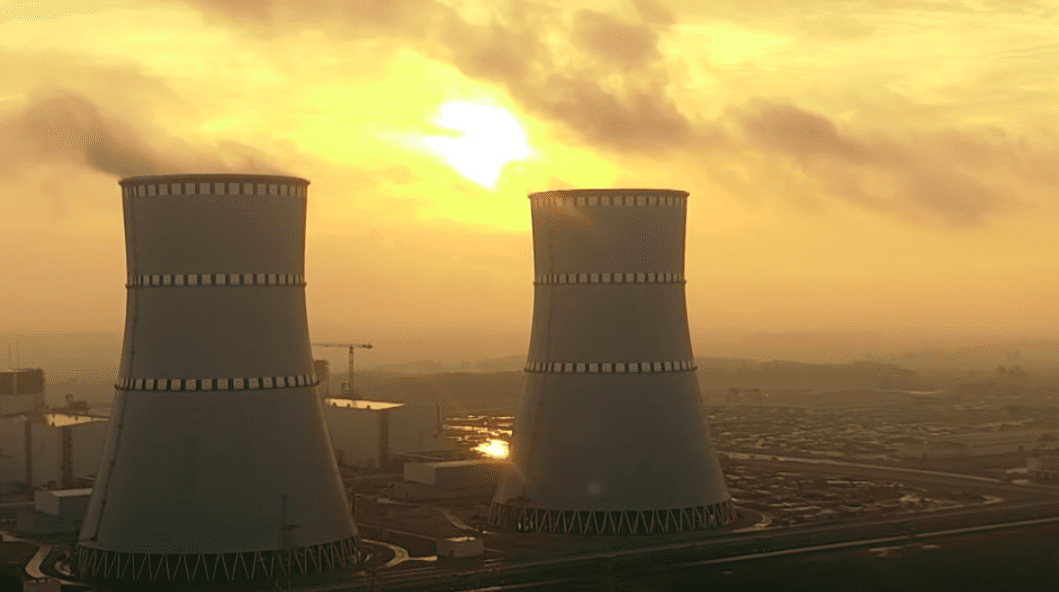End the War on Nuclear Power—Start with Radiation
The post End the War on Nuclear Power-Start with Radiation appeared first on POWER Magazine.

Governments and non-governmental organizations worldwide are clamoring for reduction in human-generated CO2 emissions. Yet, America's largest carbon-free energy source is regulated and demonized to the point of criminalization. It's time to end the war on nuclear energy; starting with how we think about radiation.
COMMENTARY
Nuclear energy is the cleanest, safest, densest, and most reliable energy source. The value proposition for nuclear energy is unparalleled; it's the only commercially proven, dispatchable clean energy technology that can be scaled up fast enough to meet the demand for electricity in a decarbonizing scenario.
In contrast to intermittent renewables, nuclear power plants provide the reliable electricity that Americans depend on 24/7/365. Recent rolling blackouts across the country underscore the value in having reliable and fuel-secured energy sources that do not require favorable weather conditions or just-in-time refueling. Unfortunately, nuclear energy is also the most regulated, thanks, in part, to unfounded fear of radiation and resulting regulation based on the linear no-threshold (LNT) hypothesis.
The LNT ModelCrafted in the early days of the Cold War, the outdated LNT model supposes that all radiation has deadly risk and, thus, any radiation dose is harmful. However, this claim is scientifically unsubstantiated at all but very high doses. Instead, as explained by radiation oncologist Tony Brooks, Low-dose responses are non-linear at all levels of biological organization (molecular, cellular, tissue, organism) and suggest that LNT overestimates risk."
Under LNT, the regulated dose limit to the public from nuclear power must be less than 100 millirem/year. However, according to the National Council on Radiation Protection and Measurements, the average American receives a radiation dose of 620 millirem/year. Natural environment and medical procedures contribute 98% of this annual dosage. Nuclear power contributes less than 0.1%.
Despite remaining unsubstantiated, LNT still forms the basis for all nuclear-related regulation. Under LNT, significant resources go into getting doses lower than the surrounding natural background. This adds considerable expense to nuclear operations without any added benefits.
Anti-nuclear activists endorse LNT-based regulation because it increases capital and operating costs of nuclear power plants. Our campaign stressing the hazards of nuclear power will supply a rationale for increasing regulation ... and add to the cost of the industry," wrote Sierra Club's former Executive Director Michael McCloskey.
Much of LNT's regulatory burden is due to misinterpretation of the ALARA principle, which urges us to make doses As Low As Reasonably Achievable." Rather than optimizing safety as originally intended by ALARA, LNT-based regulation focuses on minimizing exposure.
Critics namedrop Fukushima as proof that nuclear energy is dangerous, even though it took a 9.1-magnitude earthquake and 49-foot-high tsunami waves to trigger the only nuclear accident of the past 35 years. Even so, no deaths or discernible cancer rate increases can be attributed to radiation released from Japan's 2011 accident, according to the United Nations Scientific Committee on the Effects of Atomic Radiation.
Benefits of Nuclear PowerHumans flourish when they have access to plentiful, safe, and reliable energy. Nuclear excels at all of these.
Anti-nuclear activists' animosity stems from their belief in the premise that unimpacted nature is ideal and, thus, any human activity that impacts nature is bad." This is a fallacy because humans are natural, and ionizing radiation is no less natural than cancer-causing sunshine. Except for localized cases of habitat destruction and point sources of toxic effluents not yet under successful management, the environment in which we live has improved dramatically over the decades.
In reality, nuclear energy has had a far lower negative impact on the environment than any other energy source, while at the same time enabling more humans to flourish within a limited space. A typical 1,000-MW nuclear plant needs roughly a square mile of land. Wind turbines would require 360 times more land to produce the same amount of electricity.
Finally, nuclear produces less waste than any other energy source. Nuclear generation is emissions-free and avoids more pollution per megawatt-hour than other sources thanks to its energy density and superior capacity factor. Nuclear energy also has the lowest lifecycle emissions among all energy sources, including renewables, which require more energy usage for mining, component production, and transport.
According to Danish economist Bjorn Lomborg, atmospheric CO 2 concentrations increased from about 305 parts per million to more than 400 ppm from 1920 to 2017, while global average temperatures increased by about 1C. Yet, worldwide the individual risk of dying from climate-related disasters declined by 99%, mostly in countries with increasingly adequate supplies of electricity, much of which is nuclear-generated. So, rather than focusing on a proxy goal of eliminating CO 2 emissions with the hope of eliminating variations in a geophysically dynamic climate, perhaps the focus should be on decriminalizing nuclear and getting sufficient power to those who need it.
-Mary Lou Dunzik-Gougar, PhDis the 2020-2021 president of the American Nuclear Society. She is also the associate dean of the Idaho State University (ISU) College of Science and Engineering, associate professor of nuclear engineering, and a senior reactor operator at ISU's Aerojet-General Nucleonics nuclear reactor, commonly known as AGN-201.
The post End the War on Nuclear Power-Start with Radiation appeared first on POWER Magazine.